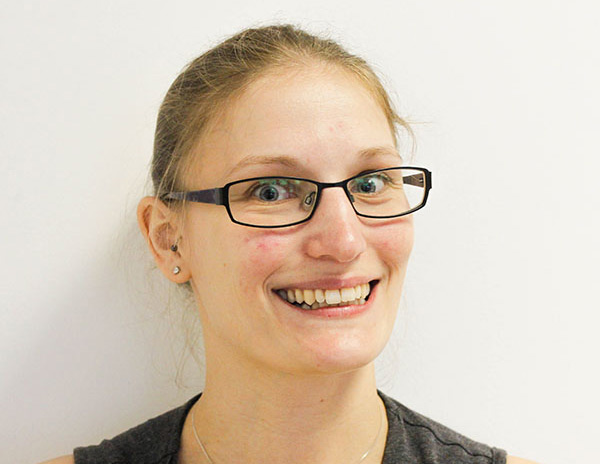Our Early Access Cognition and Learning Team supports the social, emotional and mental health (SEMH) needs of children and young people whose primary area of need is related to cognition and learning. Children and young people with special educational needs and disabilities (SEND) are at risk of low attainment, exclusion, low attendance and can be vulnerable socially and emotionally which can lead to issues with mental health.
As a whole, pupils currently identified as having special educational needs are disproportionately from disadvantaged backgrounds, are much more likely to be absent or excluded from school, and achieve less well than their peers, both in terms of their attainment at any given age and in terms of their progress over time. Over the last five years, these outcomes have changed very little. Past the age of 16, young people with learning difficulties or disabilities comprise one of the groups most likely not to be in education, employment or training.
Ofsted 2010 - a statement is not enough, 2010
Our school-based Early Access Cognition and Learning Team supports schools in achieving desired outcomes for students with cognition and learning challenges through providing immediate access to specialist SEMH services. Our Early Access Cognition and Learning Team maximises potential and reduces the likelihood of future SEMH difficulties occurring. Increasing awareness and inclusion supports cognition and learning needs whilst reducing the impact caused by SEMH needs related to these potential barriers to learning.
Some learning difficulties and disabilities occur across the range of cognitive ability and, left unaddressed may lead to frustration, which may manifest itself as disaffection, emotional or behavioural difficulties.
SEND Code of Practice, 2015
Cognition and learning is a one of the four broad areas of need outlined in the SEND code of practice (2015). It can include low levels of attainment across all areas, difficulty acquiring classroom based skills (such as literacy and numeracy), difficulty dealing with abstract ideas and generalising from experience. There are other difficulties within this area of need including specific learning difficulties (SpLD) such as Dyslexia or Dyscalculia. Associated difficulties can include social and emotional development and in speech and language difficulties (particularly in younger children).
Cognition and learning
Support for learning difficulties may be required when children and young people learn at a slower pace than their peers, even with appropriate differentiation. Learning difficulties cover a wide range of needs, including moderate learning difficulties (MLD), severe learning difficulties (SLD), where children are likely to need support in all areas of the curriculum and associated difficulties with mobility and communication, through to profound and multiple learning difficulties (PMLD), where children are likely to have severe and complex learning difficulties as well as a physical disability or sensory impairment.
Specific learning difficulties (SpLD), affect one or more specific aspects of learning. This encompasses a range of conditions such as dyslexia, dyscalculia and dyspraxia.
SEND Code of Practice, 2015
Our Early Access Cognition and Learning Team consists of EHP's:
EHP's professionals all work alongside the Early Access Cognition and Learning Team to provide maximum impact through an effective and bespoke multidisciplinary approach according to specific needs.
EHP is registered with all major professional memberships.
Our Early Access Cognition and Learning Team support the needs which are specific to a child or young person's SEMH needs. If you require cognition and learning support then please get in touch to find out which of our specialists can fulfil your requirements. Our Early Access Cognition and Learning Team support the SEMH needs of children and young people who have barriers to learning including:
Specialists in SEMH and special educational needs make up the Early Access Cognition and Learning Team and are able to carry out and interpret SEMH assessments and provide interventions whilst maintaining the individual's primary cognition and learning needs at the centre. Addressing SEMH needs can have a positive impact on attainment and progress in addition to emotional wellbeing.
Our specialist services can be accessed by education, health and other professions working with children and young people.
It is widely recognised that a child's emotional health and wellbeing influences their cognitive development and learning, as well as their physical and social health and their mental wellbeing in adulthood.
Promoting children and young people's emotional health and wellbeing, 2015
EHP's Early Access Cognition and Learning Team provide a range of assessments and screening to identify SEMH needs among children and young people with existing cognition and learning needs. Our specialists may need to adapt screening and assessments in order to make them accessible for all levels of cognition and learning needs. Having a cognition and learning need can impact on a child or young person's SEMH and wellbeing which can affect attainment - a holistic approach is key to understanding and supporting.
Cognition and learning needs can at times disguise emerging SEMH needs, due to similarities in behaviour, meaning that early SEMH needs identification and intervention is challenging without specialist input. Swift and targeted intervention following accurate assessments maximises the potential of the child or young person in addition to improving their emotional wellbeing. Understanding needs is important within education settings as it allows for teaching staff to support these needs within everyday life, which could lead to stronger student-teacher relationships.
There is a strong association between poor mental health and SEN. Children with
diagnosable mental health disorders are between 2 and 4 times as likely to be identified
as having an SEN as children with no mental health disorder.
Counselling in schools: a blueprint for the future (2015)
SEMH interventions for children and young people who have cognition and learning needs are chosen or designed based on the specific nature of both the SEMH and cognition and learning needs. Examples of interventions which our Early Access Cognition and Learning Team offer are:
When SEMH needs are related to cognition and learning needs then an intervention with a joint focus is likely to be used, for example, exam preparation (groups) will include mental strategies to not only support cognition and learning needs but also emotional wellbeing on an individual and a group basis. If you have a particular area in mind for an individual or group intervention then please get in touch to see how we can help.
Our Early Access Cognition and Learning Team provide a variety of services on a whole school level to support both SEMH and cognition and learning. Whole school work is specific to the education setting and our Early Access Cognition and Learning Team is flexible and adaptable to your needs and requirements. Examples of the types of work we provide include:
A whole school approach towards cognition, learning and SEMH improves outcomes and raises morale.
Our Early Access Cognition and Learning Team deliver the following training sessions in addition to bespoke training designed specifically for your needs:
Our training sessions are updated regularly to be inline with current government legislation and guidelines. Training can be delivered onsite and offsite and includes INSET days and twilight sessions.
Using our Early Access Cognition and Learning Team brings many benefits to your education setting, because we:
Through taking primary and secondary needs into account our Early Access Cognition and Learning Team reduces the impact of SEMH needs within children and young people who have cognition and learning challenges.
Children and young people with cognition and learning needs can be affected by SEMH needs at any time of their life, which is why all types of education settings, covering all ages 0-25, can access our Early Access Cognition and Learning team:
If you work in an education setting and are not sure if you can access our Early Access Cognition and Learning Team then please get in touch to talk to a member of our team.



Our services can be funded through a variety of ways.
Our Early Access Cognition and Learning Team provides specialist multidisciplinary input for children and young people with primary cognition and learning needs and secondary SEMH needs. We work with children and young people of all levels of need to maximise their potential and support them in their preparation for the future.
Our specialist multidisciplinary services can be commissioned through a service level agreement and as standalone input.
If you would like to find out more about the services we offer or to book a free initial discussion then please contact us on email office@ehp.org.uk
EHP © Copyright 2025. ALL Rights Reserved.
Part of Tx Group

At EHP we thrive on feedback. We're happy to hear that this page has been helpful to you, would you like to leave some feedback?
At EHP we thrive on feedback. We're sorry to hear that this page wasn't what you where looking for, how can we improve this service?
At EHP we thrive on feedback. We're sorry to hear that there was something on the page you found unsatisfactory, how can we improve this?




